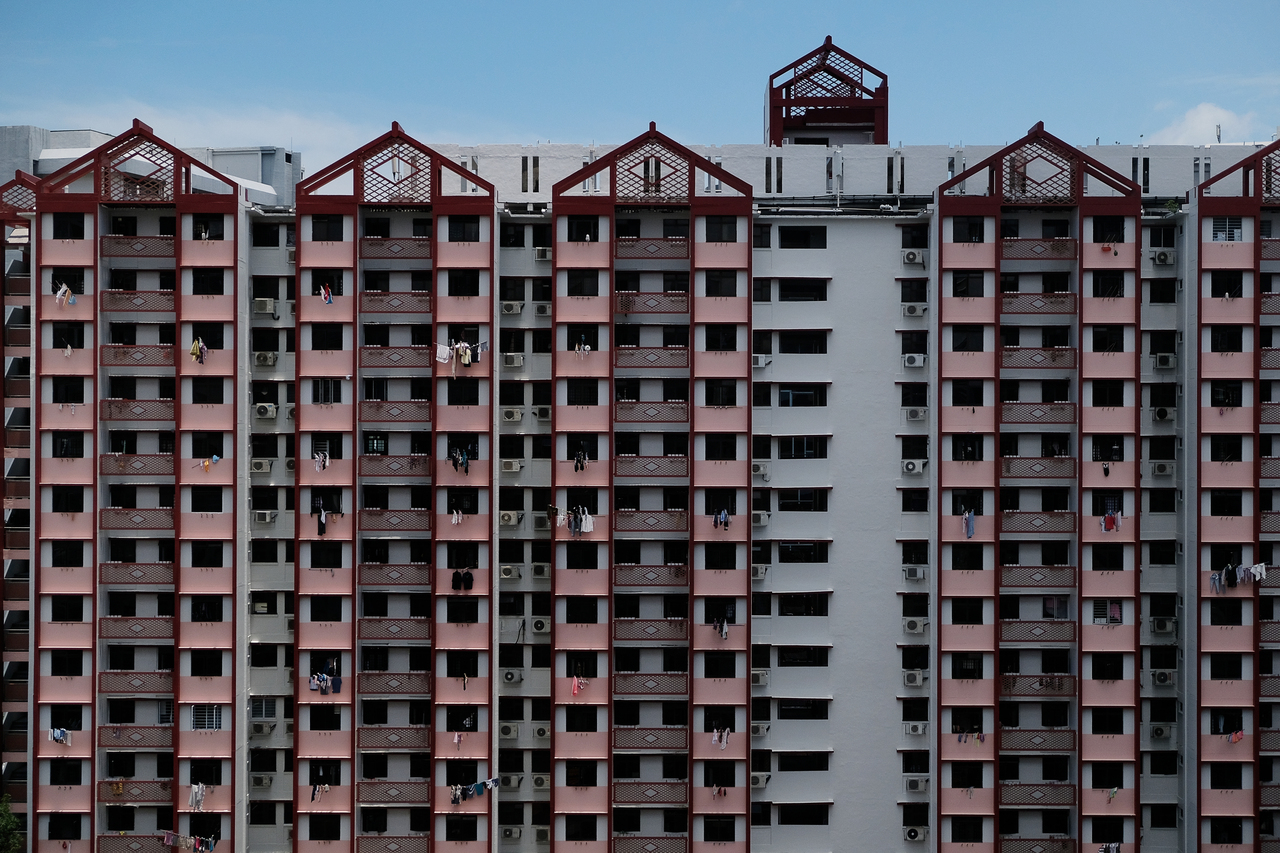More SAF personnel deployed to help with Covid-19 home recovery programme
Sign up now: Get ST's newsletters delivered to your inbox

The Covid-19 home recovery programme had faced teething issues and numerous complaints in the first few weeks after it was launched.
PHOTO: LIANHE ZAOBAO
SINGAPORE - Up until a month ago, Corporal Luth Danish Zani's role in the Singapore Armed Forces (SAF) involved supporting other units in their operations as a combat engineer.
But since Sept 29, the 23-year-old has been helping with the national Covid-19 effort as a home recovery buddy - the first line of contact for Covid-19 patients who test positive - under the Ministry of Health's (MOH) Covid-19 home recovery programme.
More resources have been poured into the programme, including deploying more SAF soldiers as recovery buddies, improving the telemedicine system and roping in other government agencies, said Mr Dinesh Vasu Dash, group director of MOH's Crisis Strategy and Operations Group, on Wednesday (Oct 27).
Such efforts have led to an improvement in outcomes, such as better handling of call volume and more patients getting telemedicine support quicker, he added.
The programme had faced teething issues and numerous complaints in the first few weeks after it was launched. Many people had reported that they were unable to reach MOH for advice on their specific situation, and were unsure of what to do next.
Mr Dinesh said on Wednesday that thanks to the help of various parties, the team is now able to handle 95 per cent of all incoming and outgoing calls about the programme.
In addition, more than 90 per cent of those who are eligible for home recovery are now contacted to be brought on to the programme within 24 hours of them submitting their details online.
The home recovery programme has become the default mode of care for Covid-19 patients with no or mild symptoms. On average, about 70 per cent of those infected daily are now recovering at home.
This is with the exception of some individuals who are assessed to be ineligible due to their vaccination status and age.
Mr Dinesh added that due a new telemedicine system known as the Telemedicine Allocation Reconciliation System, almost 85 per cent of those who request telemedicine support receive it within the first 24 hours.
This is an improvement from early October, when the figure was around 50 per cent, he said.
Colonel Tong Yi Chuen, commander of the Home Recovery Task Group, said that currently, about 90 SAF regulars, 350 full-time national servicemen and 10 volunteers from the SAF Volunteer Corps are helping the programme in various roles.
This is an increase from the more than 200 personnel deployed on Sept 29.
The Defence Science and Technology Agency also helped provide technical expertise to quickly set up the expanded call centre for the Home Recovery Buddy Hotline.
As a home recovery buddy, Cpl Luth said that he sometimes has to deal with frustrated or anxious patients.
"Some of them don't know what is going to happen or wonder why no one is telling them where to go," he said, adding that he will usually try to empathise with them, listen to them and see how he can help them.

Other government agencies have also joined the effort.
The Agency for Integrated Care, through its outreach arm, the Silver Generation Office, helps seniors aged 60 and above in their home recovery journey.
This is done through visits to vulnerable seniors, calling them daily until their isolation order ends and delivering meals to them where needed.
On the tech front, the Government Technology Agency has helped to automate workflows and implement a sorting algorithm to determine patients' suitability for the home recovery programme.
Meanwhile, about 1,600 staff and volunteers from the People's Association have distributed some 36,200 care packs to households with people on the programme, as part of efforts to assure them that help is accessible and people are there to support them.
The Public Service Division has helped to coordinate and deploy public servants from various agencies to take on short-term roles such as that of home recovery care managers.
These managers link up individuals who require additional support with various community services and resources, and help reassure them over the phone.
Thanking the various agencies for their help, Mr Dinesh added that it is important to care for the social as well as medical needs of those on home recovery.
He said that MOH is currently developing a pilot programme that will see mobile teams going to the houses of elderly patients - who are more vulnerable - and providing them with medical help.
Such patients either have multiple comorbidities or are not eligible for home recovery, but insist on staying at home.
"It may be more helpful to have a team that assesses on the spot rather than through the phone... that they can recover safely at home. If not, the medical team can advise individuals to reconsider and to be brought out to a care facility," he said.


